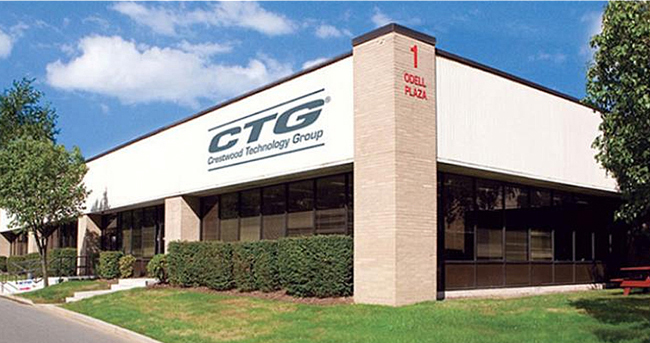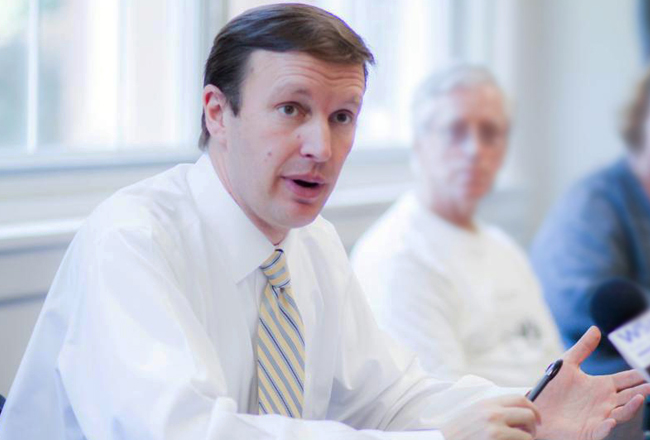 A federal judge has ordered Patrick K. Dunn, a former sales executive at Crestwood Technology Group, to pay the Yonkers military contractor more than $1.2 million for stealing trade secrets.
A federal judge has ordered Patrick K. Dunn, a former sales executive at Crestwood Technology Group, to pay the Yonkers military contractor more than $1.2 million for stealing trade secrets.
U.S. District Judge Kenneth M. Karas also ordered Dunn on April 2 to return all company documents, emails and equipment and to refrain from contacting Crestwood Technology Group clients for a year.
Dunn had voluntarily defaulted in the case, but still denies wrongdoing.
“Crestwood weaponized the court system,” Dunn stated April 1 in a related lawsuit, destroying his career and ruining his life.
He claims that his former employer drove him into bankruptcy on false charges and that his strategy of defending himself without a lawyer led to “disastrous results.”
Dunn worked for Crestwood Technology as a full-time consultant beginning in 2013 and as an employee from 2016 to September 2017, when he was fired. As executive vice president of development, he was paid $300,000 a year to cultivate the company”™s top customers.
Crestwood Technology sells electronic components to the military and to the aerospace, defense and commercial aviation industries.
The company sued Dunn in federal court in White Plains in 2017. Crestwood Technology alleged that he had forwarded many confidential emails containing client information to his private email account, switched his company cellphone number to a personal account, given confidential information to a direct competitor owned by his son, and then suddenly moved to Towson, Maryland.
Dunn also was suspended for three months in 2017, Crestwood noted, pending a debarment action by the U.S. Navy concerning something that had happened, but not explained in the complaint, before Dunn joined the company.
Dunn responded in court filings that he had downloaded company documents in preparation for a performance review. He had deleted all of the forwarded emails within 72 hours under the direction of the company”™s legal counsel. The phone number he switched had been his personal number for 17 years, the company phone was broken and he returned it. He claims he had notified CEO Joe Mancino that he was moving to Maryland.
His son”™s company is a Crestwood Technology supplier, he stated in his response, not a competitor. The Navy investigation concerned an alleged shipment of subpar parts in 2008, and he was “completely vindicated.”
He never violated his agreements with Crestwood, Dunn said, never stole anything and never influenced any customers to leave Crestwood.
“The entire complaint is based on speculation and paranoia,” he said in his response.
Dunn has been unemployed ever since he was fired, according to a court filing, because no one would hire him because of the federal lawsuit.
Last spring, he filed for Chapter 7 bankruptcy liquidation in Baltimore. He declared $324,436 in assets, including a $282,000 house exempt from creditors, leaving about $42,000, and $232,865 in liabilities.
He had sold most of his jewelry, including Cartier, Breitling and Rolex watches, a record collection and a piano. His car was repossessed and he was receiving public assistance for treatment by a cardiologist and psychiatrist.
The bankruptcy judge discharged his debts in August, preventing creditors, in most instances, from trying to collect from him.
In defending himself in the federal lawsuit in White Plains, Dunn has repeatedly run afoul of court procedures. In October, according to a letter to the judge by Crestwood”™s attorney, Dunn had asked for a default judgment.
Dunn said he had “no other options and no resources,” according to a bankruptcy filing. He requested the default, “just to have it over.”
Then Crestwood filed an adversarial action in bankruptcy court in Baltimore, challenging the court”™s discharge of debts. The complaint reiterates the accusations in the federal lawsuit, cites the default, and argues that Dunn”™s debts should not be forgiven because he had committed larceny and embezzlement.
“Where are all the nefarious acts they claim?” Dunn stated in his response. “Where”™s the fraud, theft, larceny and embezzlement?”
He asked bankruptcy court to dismiss Crestwood”™s complaint. Then, still acting as his own attorney, he apologized for his “naivety towards protocol.”
“I have never been involved in anything like this before,” he stated, “and I basically have no idea what I am doing.”




















